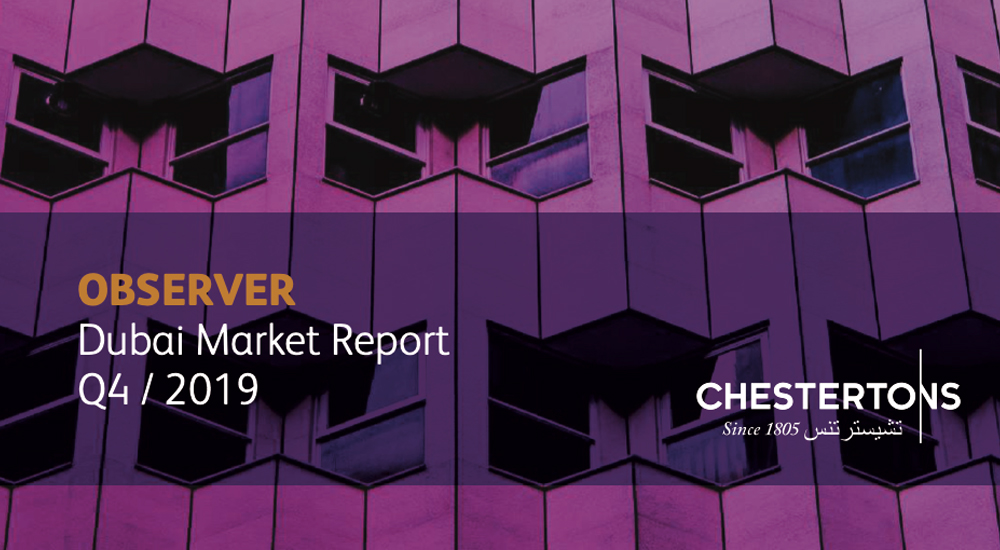45,000 units delivered in 2019, 90,000 units in 2020, Chesterton on Dubai real estate

Dubai’s real estate market could be seeing the first signs of growing market confidence. This is a result of a notable slowdown in apartment sales price declines and the stabilisation of rental rates, according to the latest Chestertons’ Observer: Dubai Market Report Q4 2019.
Transaction values for the year also underscored the positivity in the market with completed units witnessing a 60% increase compared to 2018, and off-plan units recording a 99% increase during the same period. The volume of transactions was similarly positive in 2019 for completed and off-plan units, with a 39% and 68% increase compared to 2018.
While green shoots are visible, supply is still the single biggest contributor to declining residential prices in the Emirate. 45,000 completed units were delivered in 2019, the highest number of units in the last five years, with a further 90,000 units scheduled by developers to complete in 2020.
While it is likely that a significant minority of planned projects will overrun their scheduled completion, the volume of units, by any measure, is clearly out of step with current market-wide sales performance.
The volume of units, by any measure, is clearly out of step with current market-wide sales performance
Chris Hobden, Head of Strategic Consultancy, Chestertons MENA, said: “The Dubai residential market in Q4 2019 is alluding to a more positive outlook for 2020 thanks to the slowdown of sales price declines and the levelling of rental rates.
“This does, however, have to be tempered by the volume of new units scheduled for delivery in 2020, which makes the short-term recovery of prices in the Emirate unlikely. Oversupply contributed to declining capital values in Dubai and has resulted in further price declines in Q4. To ensure high occupancy in 2020, landlords will have to be realistic in the face of tough market conditions. The incentives previously offered to tenants, such as rent-free periods, multiple cheques and short-term leases will continue, with an increase in tenant demand for monthly direct debit payments also likely” added Hobden.
“Despite the challenging environment for landlords, due to falling rents, Dubai is still seen as providing decent yields in the long-term rental market, with the 10 most popular communities offering returns of between 6% and 9.5%. To put this in context, prime rental yields in major global cities such as London or Hong Kong, are currently below 5%,” concluded Hobden.





